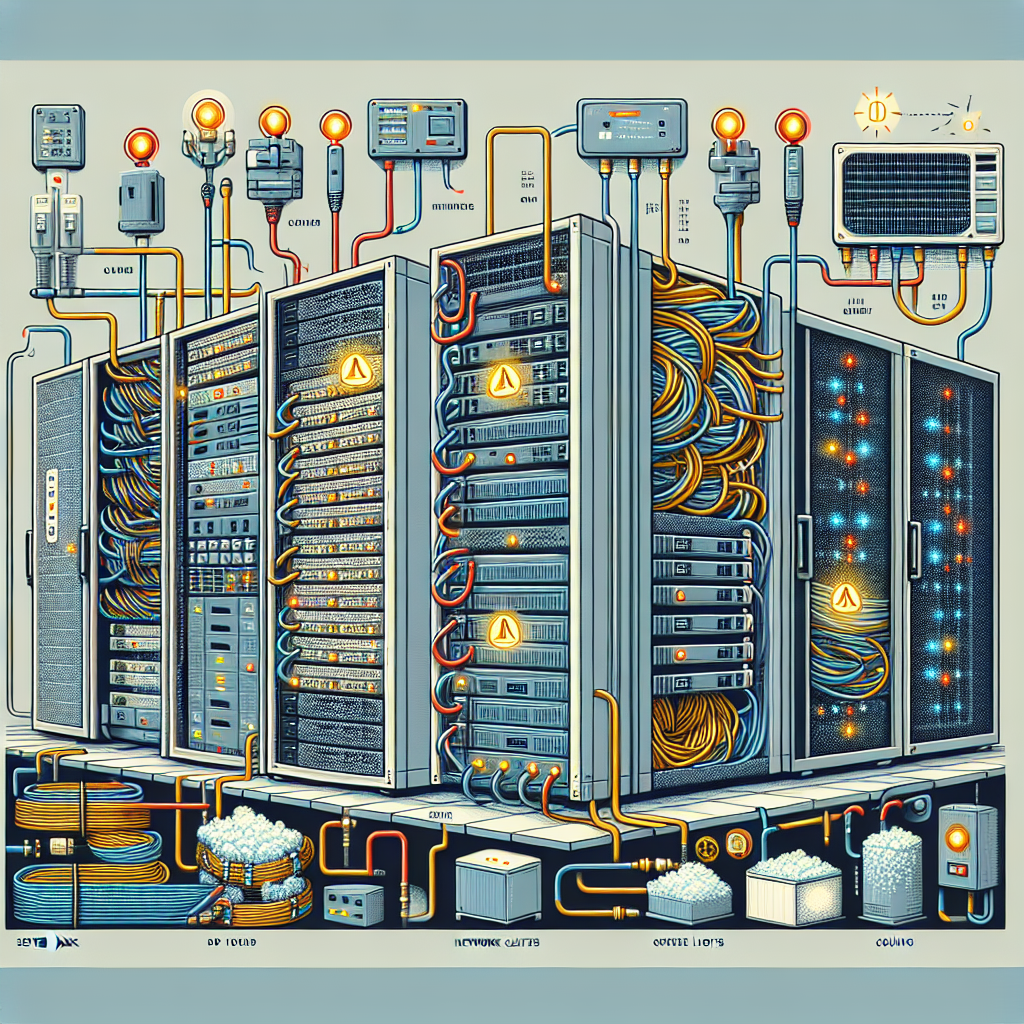Your cart is currently empty!
Common Data Center Troubleshooting Issues and How to Resolve Them

Data centers are an essential component of modern businesses, serving as the central hub for storing and managing critical information and applications. However, like any complex system, data centers are prone to encountering various issues that can disrupt operations and lead to costly downtime. In this article, we will discuss some common data center troubleshooting issues and provide tips on how to resolve them effectively.
1. Power Outages:
One of the most common issues data centers face is power outages, which can be caused by a wide range of factors such as electrical faults, grid failures, or extreme weather conditions. To mitigate the impact of power outages, data centers should have backup power systems in place, such as uninterruptible power supplies (UPS) or generators, to ensure continuous operation during an outage. Regular maintenance and testing of these systems are also essential to ensure they are functioning properly when needed.
2. Cooling System Failure:
Data centers generate a significant amount of heat due to the operation of servers and other equipment, making cooling systems vital for maintaining optimal temperature levels. Cooling system failures can lead to overheating, which can damage equipment and result in system downtime. To prevent cooling system failures, data center operators should regularly monitor temperature levels, clean air filters, and perform routine maintenance on cooling equipment. In the event of a cooling system failure, it is crucial to have a backup cooling system or emergency cooling solutions in place to prevent equipment damage.
3. Network Connectivity Issues:
Network connectivity issues can disrupt data center operations and prevent users from accessing critical applications and information. Common causes of network connectivity issues include faulty cables, misconfigured network settings, or hardware failures. To troubleshoot network connectivity issues, data center operators should perform a thorough inspection of network equipment, check for any physical damage to cables, and verify network configurations. In some cases, rebooting network equipment or updating firmware can resolve connectivity issues.
4. Hardware Failure:
Hardware failures can occur unexpectedly and lead to system downtime, data loss, and potential financial losses. Common hardware failures in data centers include hard drive failures, memory errors, or power supply failures. To prevent hardware failures, data center operators should regularly monitor hardware health using monitoring tools, perform routine maintenance, and replace aging hardware components before they fail. In the event of a hardware failure, having spare hardware components on hand can help expedite the repair process and minimize downtime.
5. Security Breaches:
Data centers store sensitive information and are prime targets for cyberattacks and security breaches. Common security issues include malware infections, unauthorized access, or data breaches. To enhance data center security, operators should implement robust security measures such as firewalls, intrusion detection systems, and encryption protocols. Regular security audits and employee training can also help prevent security breaches and protect valuable data stored in the data center.
In conclusion, data center troubleshooting requires a proactive approach to prevent and resolve issues effectively. By implementing best practices, conducting regular maintenance, and having contingency plans in place, data center operators can minimize downtime, ensure data integrity, and maintain optimal performance. By addressing common data center troubleshooting issues promptly and effectively, businesses can safeguard their critical information and maintain uninterrupted operations.

Leave a Reply